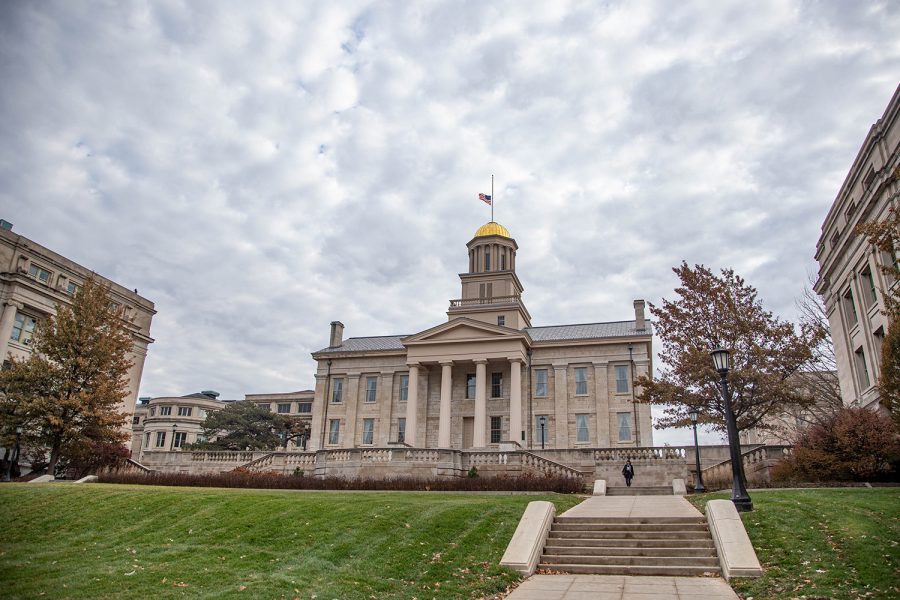Letter to the Editor: Shared governance’s compliance with P3 isn’t the same as approval
The deal was already done by the time UI shared governance signed off on it.
The Old Capitol is seen on Wednesday, Nov. 20, 2019.
January 23, 2020
I’m writing in response to the self-congratulatory claims quoted in the Daily Iowan article of Dec. 11, “Four UI shared-governance branches back public/private partnership.” This article appears to be part of a public-relations strategy by the university administration to respond to (legitimate and understandable) concerns raised by the public and elected representatives about the lack of transparency in the decision-making process that led to the recent and rapid approval of the public/private partnership.
[Editor’s note: The DI is independent from the University of Iowa.]
As a member of one of the four “shared-governance branches” mentioned in that article and as president of the UI chapter of the American Association of University Professors, I can say that this decision-making process was not an example of shared governance as defined by our organization, which mandates “shared responsibility among the different components of institutional government and specifies areas of primary responsibility for governing boards, administrations, and faculties.”
True, UI President Bruce Harreld and other representatives of the central administration met with Faculty Senate and Faculty Council a number of times to inform us of their deliberations and answer our questions. However, it quickly became clear that they had already decided to move forward on this risky scheme. Furthermore, the very nature of the scheme as a private venture prevents them from providing us with crucial information about the parties involved. Rather, it became clear the shared governance was to be part of the deal itself, insofar as all of the constituencies consulted will now be able to compete for the funds.
The main concern which faculty raised at every meeting, and to which no one from president on down had a satisfactory response, was how this scheme would affect state appropriations. What’s to stop the Legislature from reducing them in proportion to the millions of dollars we will now be competing over in the coming years? The answer: Nothing.
Indeed, insofar as the scheme was originally proposed by the governor, it would appear likely that such deappropriation was part of the plan. The consequences this will ultimately have for faculty recruitment and retention remain unclear. I fear in future years the UI will become a cautionary tale on how not to respond to decreasing state appropriations.
By making all these rosy claims about shared governance, the central administration, having already made their decision, is essentially ensuring that the blame will be shared, unfairly and inaccurately, if this doesn’t work out. A public university is a public trust, not a private investment. And governance cannot be shared when decisions are privately made for personal and corporate profit.
— Loren Glass, UI Professor of English, UI Chapter President of AAUP



